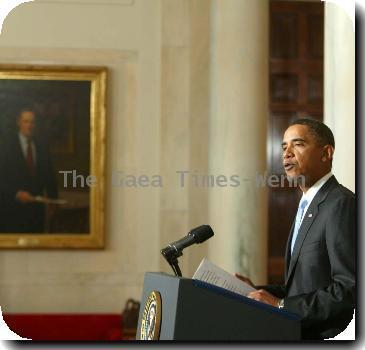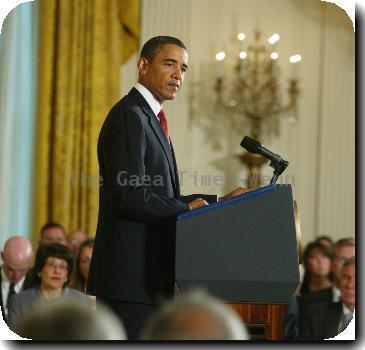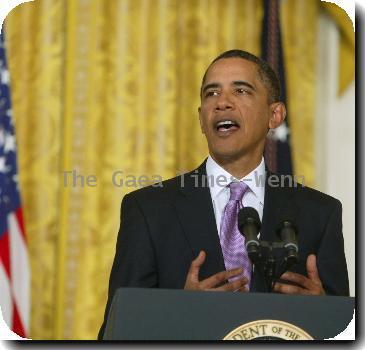Greek PM seeks Europe debt pledge as clashes hit Athens during protest against austerity
By Nicholas Paphitis, APFriday, March 5, 2010
Clashes in Athens as Greek PM seeks EU debt help
ATHENS, Greece — The Greek parliament approved new spending cuts and taxes Friday aimed at defusing the country’s debt crisis, while protesters opposed to the measures fought with police outside. Prime Minister George Papandreou headed abroad to seek European leaders’ support for his efforts.
Riot police used tear gas and baton charges to disperse rioters who chased the ceremonial guards in 19th-century kilts and tasseled garters away from the Tomb of the Unknown Soldier outside the parliament, while a top trade union leader was roughed up by left-wing protesters.
It was the biggest outburst of violence since Greece’s debt crisis escalated late last year. Police say they arrested 5 people, and seven officers were injured.
Greece’s financial troubles have shaken the European Union and its shared euro currency, whose rules were supposed to prevent governments from running up too much debt.
Up to 7,000 demonstrators gathered outside as lawmakers debated the austerity package, which aims to save euro4.8 billion ($6.5 billion) with measures including higher consumer taxes and cuts to public sector workers’ pay of up to 8 percent.
Papandreou met in Luxembourg with Prime Minister Jean-Claude Juncker, head of the group of eurozone finance ministers. Later Friday, he will hold talks in Berlin with German Chancellor Angela Merkel.
Demonstrators attacked the two military guards and their escorting officers, smashing windows and kicking the guard posts. Earlier, leftwing protesters attacked the head of Greece’s largest trade union who was addressing the crowd.
GSEE head Yiannis Panagopoulos traded blows with his assailants before being whisked away bloodied and with torn clothes.
GSEE and the ADEDY umbrella civil servant union held work stoppages to protest the austerity measures, while hospitals, schools and public transport were closed down.
Further violence broke out later Friday in Athens, with masked youths attacking riot police inside the Council of State, Greece’s highest administrative court, and trying to break into the Labor Ministry. Rioters also smashed the glass fronts of two banks, two hotels, a mobile phone shop and a fast food restaurant.
An earlier protest ended peacefully, while there were smaller clashes during two protests in Thessaloniki, Greece’s second-largest city.
The center-left government says it is seeking a total euro16 billion ($21.87 billion) in savings this year, to reduce a bloated budget deficit of some euro30 billion that is over four times the EU limit as a percentage of annual output.
The cuts are key in convincing bond markets to loan the country money and to win support from the European Union.
Merkel and Germany, as the biggest of the 16 countries that use the euro, would play a key role in any financial lifeline the EU plans to offer Greece. But the German government has said that Friday’s meeting is not about giving aid and the EU’s promise of support, first issued last month, remains vague.
Despite raising euro5 billion ($6.83 billion) from a successful 10-year bond issue Thursday, Athens remains under intense pressure from high borrowing rates. Papandreou has ruffled Europe’s feathers by warning that Greece could request financial help from the International Monetary Fund unless the EU details potential emergency support.
Jean-Claude Juncker said after meeting Papandreou that “we have to deal with the problem as a euro area.”
He said it was acceptable for the IMF to offer technical assistance. But he insisted: “as the chairman of the euro group I’d like to exclude any further involvement of the IMF.”
Papandreou insists Greece is not seeking bailout money from the European Union but a public commitment to a financial rescue plan that would reassure markets.
Asked what he wants from Merkel, Papandreou said in an interview published Friday in Germany’s daily Frankfurter Allgemeine Zeitung that Greece needed “support … that there is European support so that we can borrow money under reasonable conditions.”
He said that Greece has never asked for a bailout, but lack of support would hurt his reform plans.
“And that would, one way or another, be expensive for all of Europe,” Papandreou said. “If the euro retreated, that might help some countries with their exports, but it would for example make importing oil and gas more expensive.”
Merkel said Friday she expects “interesting” and friendly talks with Papandreou, adding that Greece’s successful bond issue “gives us optimism” that things will go well in the months ahead.
At a televised news conference in Munich, Merkel said the sale showed that the new austerity measures announced this had the desired effect.
Papandreou will also discuss the debt crisis with French President Nicolas Sarkozy in Paris Sunday, and meet U.S. President Barack Obama on March 9 in Washington.
French Finance Minister Christine Lagarde said Friday that Sarkozy would back Greece if its debt woes got it into real trouble.
While she told LCI television that Sunday’s meeting would focus on how the Greek government’s new austerity plans will be enacted, she also said she expects Sarkozy will tell Papandreou that France would be there if Greece got into real difficulties. She did not explain what form that support would take.
Friday’s strike saw state schools closed, while hospitals functioned with emergency staff and all Athens public transport was idle. An air traffic controllers work stoppage from 1000GMT to 1400GMT canceled dozens of flights, while journalists also walked off the job for a few hours.
Finance Minister George Papaconstantinou said the belt-tightening would work — if unswervingly enforced.
“In emergencies, governments take emergency measures,” he told lawmakers during the austerity law debate. “Will we succeed? Yes, we will. Will we have to take further measures? No, provided we implement the program we have submitted. And we will.”
Associated Press Writer Derek Gatopoulos in Athens, Costas Kantouris in Thessaloniki, AP Business Writer Emma Vandore in Paris, Geir Moulson in Berlin and Robert Wielaard in Luxembourg contributed to this report.
Tags: Arts And Entertainment, Athens, Barack Obama, Berlin, Children's Entertainment, Civil Service, Emergency Management, Europe, France, Germany, Greece, Labor Issues, Luxembourg, Mass Transit Systems, Protests And Demonstrations, Riots, Transportation, Western Europe











